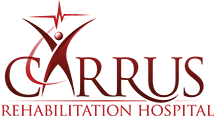
The human body is an intricate machine, and like any machine, sometimes parts malfunction or wear out. One such vital component is our kidneys. When they falter, dialysis becomes a lifesaver for many.
What is Dialysis, and Why is it Important?
At its core, dialysis is a treatment method that mimics the kidney’s function, filtering waste products and excess fluid from the blood when the kidneys can’t do the job. Whether due to chronic kidney diseases or sudden kidney failure, dialysis acts as a temporary or long-term bridge for helping the human body maintain its fluid balance.
Who Needs Dialysis?
People requiring dialysis typically fall into the following categories:
- Those with advanced chronic kidney disease (CKD) or reach end-stage renal disease (ESRD), where kidneys lose 85% to 90% of their functionality.
- Individuals suffering from conditions that damage the kidneys, such as:
- Diabetes
- High blood pressure
- Recurrent kidney infections
- Polycystic kidney disease
- Some autoimmune disorders might necessitate dialysis
- Patients experiencing acute kidney injury due to:
- Trauma
- Specific medications
- Severe infections
Regular check-ups with a nephrologist will help determine if a patient needs dialysis.
The Benefits of Dialysis
While dialysis can’t fully replace natural kidney function, it offers a valuable solution for those with kidney failure. The benefits extend beyond physical health, touching on psychological and social aspects of a patient’s life. As technology advances, we can expect further improvements in dialysis care and its benefits.
- Removal of Waste and Toxins: One of the primary roles of the kidneys is to filter out waste products and toxins from the bloodstream. Dialysis takes over this function, ensuring harmful substances don’t build up in the body.
- Fluid Balance: Kidneys help regulate the balance of fluids in the body. Dialysis helps prevent fluid overload, which can lead to conditions like pulmonary edema (fluid in the lungs) and high blood pressure.
- Electrolyte Balance: Kidneys also balance essential electrolytes, such as potassium, sodium, and calcium. Dialysis helps keep these electrolytes safe, preventing potential complications like heart arrhythmias.
- pH Balance: The kidneys play a crucial role in maintaining the body’s acid-base balance, ensuring the blood remains slightly alkaline. Dialysis helps regulate this pH balance when the kidneys fail.
- Alleviation of Symptoms: By taking over the kidneys’ essential functions, dialysis can alleviate many symptoms associated with kidney failure. These symptoms include fatigue, nausea, shortness of breath, and swelling.
- Improved Quality of Life: While it’s a commitment, dialysis can help patients with kidney failure lead more normal lives, allowing them to engage in everyday activities, work, and spend time with loved ones.
- Bridge to Transplant: Dialysis acts as a bridge for patients awaiting a kidney transplant, maintaining their health until a donor kidney becomes available.
- Increased Lifespan: Without dialysis, individuals with complete kidney failure would have a limited life expectancy. Dialysis can significantly extend the life of someone with kidney failure.
- Dietary Flexibility: Though patients on dialysis still need to follow nutritional guidelines, the treatment can offer more flexibility in food and drink choices compared to not having the treatment at all.
Modern Technological Advancements in Dialysis
Fast forward to today, and here are the impressive advancements we can expect from dialysis:
- Machines and Equipment: Modern dialysis machines are compact wonders. Equipped with touchscreen controls, they offer automated settings tailored for each patient, ensuring optimal treatment. Plus, data storage capabilities allow for easy tracking and adjustments as needed.
- Wearable Dialysis Devices: Imagine not being tethered to a machine or a specific location. Wearable tech has made strides in dialysis care, offering continuous treatment options that patients can wear, increasing their mobility and flexibility.
- Telehealth and Remote Monitoring: We live in a connected world, and dialysis is no exception. Telehealth platforms now enable healthcare providers to monitor patient treatments in real time, ensuring safety and timely interventions. This is especially vital for those in remote areas or with limited mobility, bridging gaps in care.
- Personalized Dialysis Treatments: One size does not fit all, especially in healthcare. With the integration of data analytics and artificial intelligence (AI), treatments can now be optimized based on individual patient needs, ensuring the best possible outcomes.
The Blessings of Technological Advancements
These are the benefits these advancements bring:
- Enhanced Quality of Life: Thanks to portable and wearable options, patients can now undergo treatments with minimal disruption to their daily routines.
- Greater Treatment Flexibility: Home-based treatments are increasingly feasible, allowing patients the comfort and familiarity of their environment.
- Reduced Errors: Automated settings and real-time monitoring diminish the risk of complications or errors during treatment.
- Efficient Data Handling: For healthcare providers, streamlined data collection ensures they’re always in the loop about their patient’s health status.
Top-Notch Dialysis in Sherman, TX
The fusion of technology and healthcare has elevated dialysis care to new heights. While challenges persist, the strides technology has made for dialysis care are undeniable, and the promise of what’s to come is inspiring. Patients and their families must stay informed, engage with their healthcare providers, and explore the latest in dialysis tech, ensuring they receive the best care possible.
Facing the prospect of dialysis can be daunting, but remember, you’re not alone. Modern technology is continuously working to make your journey smoother and more comfortable. Take the next step today with Carrus Rehabilitation Hospital, where we use the latest technology for all your healthcare needs.
Schedule an appointment by calling our hotline at (903) 870-2600.

